Good place, very broad, the program helps people in need to support each other. Highly recommended!
About Brandywine Counseling & Community Services (BCCS) | Milford
Milford Treatment Center is one of five outpatient opioid recovery centers run by Brandywine Counseling & Community Services (BCCS) across Delaware. Nestled on East Masten Circle in the charming riverside town of Milford, this clinic supports adults and families facing opioid use disorders and co-occurring mental health challenges across Kent and Sussex Counties. It’s just a few blocks west of the scenic Mispillion Riverwalk, the historic Milford Museum and the stately Causey Mansion.
BCCS brings over 35 years of unmatched expertise and compassionate care across its growing network of recovery centers. The Milford Treatment Center embodies its deep-rooted commitment to walking beside individuals on the path to healing with dignity and compassion. You can choose between structured OTP with methadone or buprenorphine-based medication or a more flexible OBOT that uses only buprenorphine-based medication.
Typically, you must have at least a year’s history of opioid dependence to be accepted. However, this can be waived for clients recently released from prison, pregnant women and those previously treated by BCCS. Dedicated perinatal treatment supports pregnant, parenting and postpartum women including birthing partners by providing targeted care and case management.
Holistic Support for Long-Term Wellness
Treatment at this clinic takes a holistic approach, starting with medication-assisted treatment using methadone or buprenorphine-based options like Suboxone or Subutex to ease withdrawal symptoms and cravings. This forms part of your personalized recovery plan, shaped by a detailed intake assessment. Alongside medication, you’ll participate in therapy sessions to address underlying issues and build effective relapse-prevention strategies.
Ongoing psychiatric evaluation and medication management help you confront co-occurring mental challenges, maintain stability and support long-term recovery. Primary medical care including HIV/ Hepatitis C screening and treatment, may also be part of your holistic care to support your overall wellbeing.
Dedicated Support For the Homeless and Vulnerable
Also available at this location is a drop-in center, a safe indoor space providing case management for homeless and vulnerable individuals navigating opioid use and co-occurring conditions. Guests can access a broad range of supportive services, including food, laundry and showers. They also offer GED classes and job readiness support.
Latest Reviews
Rehab Score
Gallery
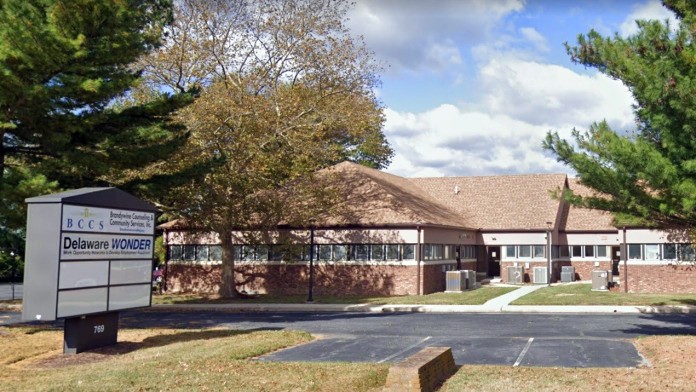
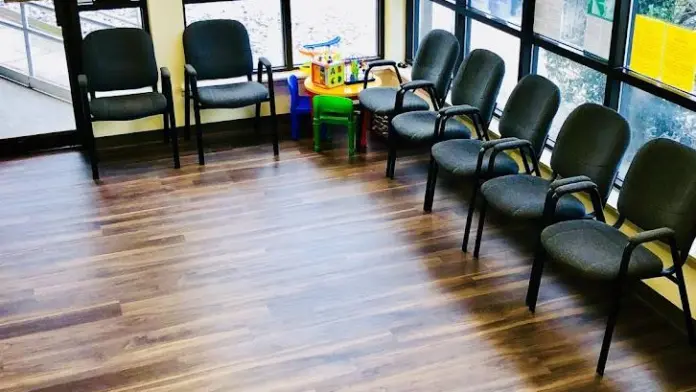
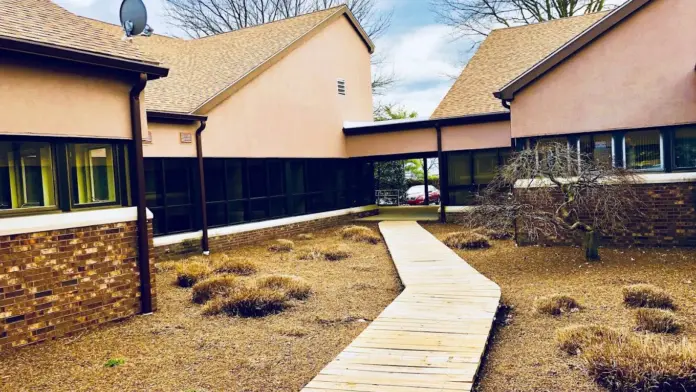
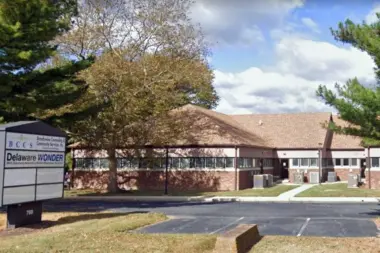
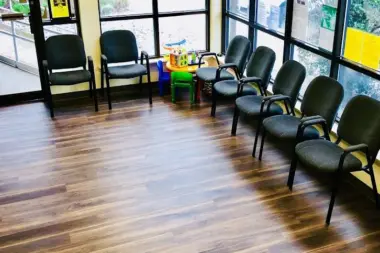
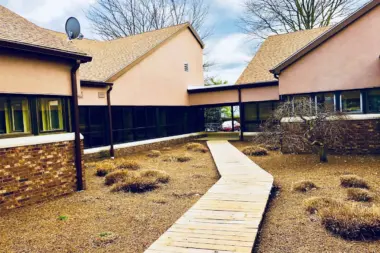
Other Forms of Payment
Private insurance refers to any kind of healthcare coverage that isn't from the state or federal government. This includes individual and family plans offered by an employer or purchased from the Insurance Marketplace. Every plan will have different requirements and out of pocket costs so be sure to get the full details before you start treatment.
Self-pay involves paying for treatment out of your own pocket. You can use savings or credit, get a personal loan, or receive help from family and friends to fund your treatment. If you don't have insurance or your insurance plan doesn't cover a specific program, self-pay can help ensure you still get the care you need.
Financial aid can take many forms. Centers may have grants or scholarships available to clients who meet eligibility requirements. Programs that receive SAMHSA grants may have financial aid available for those who need treatment as well. Grants and scholarships can help you pai for treatment without having to repay.
Sliding scale payments are based on a client's income and family size. The goal is to make treatment affordable to everyone. By taking these factors into account, addiction recovery care providers help ensure that your treatment does not become a financial burden to you or your family, eliminating one barrier to care.
Medicare is a federal program that provides health insurance for those 65 and older. It also serves people under 65 with chronic and disabling health challenges. To use Medicare for addiction treatment you need to find a program that accepts Medicare and is in network with your plan. Out of pocket costs and preauthorization requirements vary, so always check with your provider.
Medicaid is a state based program that helps lower-income individuals and families pay for healthcare. Medicaid covers addiction treatment so those enrolled can use their coverage to pay for rehab. When a program accepts Medicaid the client often pays very little or nothing out of their own pocket.
Military members, veterans, and eligible dependents have access to specific insurance programs that help them get the care they need. TRICARE and VA insurance can help you access low cost or no cost addiction and mental health treatment. Programs that accept military insurance often have targeted treatment focused on the unique challenges military members, veterans, and their families face.
Addiction Treatments
Levels of Care
Outpatient Programs (OP) are for those seeking mental rehab or drug rehab, but who also stay at home every night. The main difference between outpatient treatment (OP) and intensive outpatient treatment (IOP) lies in the amount of hours the patient spends at the facility. Most of the time an outpatient program is designed for someone who has completed an inpatient stay and is looking to continue their growth in recovery. Outpatient is not meant to be the starting point, it is commonly referred to as aftercare.
Intensive Outpatient Programs (IOP) are for those who want or need a very structured treatment program but who also wish to live at home and continue with certain responsibilities (such as work or school). IOP substance abuse treatment programs vary in duration and intensity, and certain outpatient rehab centers will offer individualized treatment programs.
Clients receiving services in a rehab aftercare program have typically completed detox or an inpatient treatment program. Aftercare programs provide customized, wraparound care to support recovery as a life-long process. Case managers, the recovery care team, and the client work together to identify and access services the client needs in order to support sustained sobriety.
12-step programs are addiction recovery models based on Alcoholics Anonymous (AA). A number of substance abuse programs (including some drug and alcohol rehab centers) use the 12 steps as a basis for treatment. Beginning steps involve admitting powerlessness over the addiction and creating a spiritual basis for recovery. Middle steps including making direct amends to those who've been hurt by the addiction, and the final step is to assist others in addiction recovery in the same way. 12-Step offshoots including Narcotics Anonymous (NA), Cocaine Anonymous (CA), Dual Recovery Anonymous (DRA), Sex and Love Addicts Anonymous (SLAA) and Gamblers Anonymous (GA).
Intervention services helps family or friends of addicts stage an intervention, which is a meeting in which loved ones share their concerns and attempt to get an addict into treatment. Professional intervention specialists can help loved ones organize, gather, and communicate with an addict. They can guide intervention participants in describing the damage the addict's behavior is causing and that outside help is necessary to address the addiction. The ideal outcome of an intervention is for the addict to go to rehab and get the help they need.
Drug and alcohol addiction often takes a heavy toll on one's body. Over time, a physical dependence can develop, meaning the body physiologically needs the substance to function. Detox is the process of removing drugs and/or alcohol from the body, a process that can be lethal if mismanaged. Medical detox is done by licensed medical professionals who monitor vital signs and keep you safe, healthy, and as comfortable as possible as you go through detox and withdrawal.
Treatments
The goal of treatment for alcoholism is abstinence. Those with poor social support, poor motivation, or psychiatric disorders tend to relapse within a few years of treatment. For these people, success is measured by longer periods of abstinence, reduced use of alcohol, better health, and improved social functioning. Recovery and Maintenance are usually based on 12 step programs and AA meetings.
Recovery is possible for those who complete drug rehab in Delaware. These programs specialize in providing an environment that encourages sobriety and a professional staff that provides the tools to overcome addiction. Participants receive a customized treatment plan tailored to their needs.
Many of those suffering from addiction also suffer from mental or emotional illnesses like schizophrenia, bipolar disorder, depression, or anxiety disorders. Rehab and other substance abuse facilities treating those with a dual diagnosis or co-occurring disorder administer psychiatric treatment to address the person's mental health issue in addition to drug and alcohol rehabilitation.
Dual-diagnosis rehabs in Delaware offer comprehensive care for individuals needing mental health and substance abuse treatment. The phrase dual-diagnosis means an individual has an addiction and a co-occurring mental health condition at the same time. Typically, you can expect these rehabs provide various levels of care, including inpatient, detox, and outpatient. You'll receive a mental health assessment and individualized treatment plan, medication (if necessary), counseling, and behavioral therapies, like cognitive-behavioral therapy (CBT).
Opioid rehabs specialize in supporting those recovering from opioid addiction. They treat those suffering from addiction to illegal opioids like heroin, as well as prescription drugs like oxycodone. These centers typically combine both physical as well as mental and emotional support to help stop addiction. Physical support often includes medical detox and subsequent medical support (including medication), and mental support includes in-depth therapy to address the underlying causes of addiction.
Programs
Adult rehab programs include therapies tailored to each client's specific needs, goals, and recovery progress. They are tailored to the specific challenges adult clients may face, including family and work pressures and commitments. From inpatient and residential treatment to various levels of outpatient services, there are many options available. Some facilities also help adults work through co-occurring conditions, like anxiety, that can accompany addiction.
Young adulthood can be an exciting, yet difficult, time of transition. Individuals in their late teens to mid-20s face unique stressors related to school, jobs, families, and social circles, which can lead to a rise in substance use. Rehab centers with dedicated young adult programs will include activities and amenities that cater to this age group, with an emphasis on specialized counseling, peer socialization, and ongoing aftercare.
Clinical Services
Group therapy is any therapeutic work that happens in a group (not one-on-one). There are a number of different group therapy modalities, including support groups, experiential therapy, psycho-education, and more. Group therapy involves treatment as well as processing interaction between group members.
In individual therapy, a patient meets one-on-one with a trained psychologist or counselor. Therapy is a pivotal part of effective substance abuse treatment, as it often covers root causes of addiction, including challenges faced by the patient in their social, family, and work/school life.
Trauma therapy addresses traumatic incidents from a client's past that are likely affecting their present-day experience. Trauma is often one of the primary triggers and potential causes of addiction, and can stem from child sexual abuse, domestic violence, having a parent with a mental illness, losing one or both parents at a young age, teenage or adult sexual assault, or any number of other factors. The purpose of trauma therapy is to allow a patient to process trauma and move through and past it, with the help of trained and compassionate mental health professionals.
Research clearly demonstrates that recovery is far more successful and sustainable when loved ones like family members participate in rehab and substance abuse treatment. Genetic factors may be at play when it comes to drug and alcohol addiction, as well as mental health issues. Family dynamics often play a critical role in addiction triggers, and if properly educated, family members can be a strong source of support when it comes to rehabilitation.
Several life skills are important to develop during and after rehab treatment in Delaware. They include communication and interpersonal skills. These life skills will help you repair, maintain, and create healthy relationships, which are important for long term sobriety.
Amenities
-
Private Setting
Staff & Accreditations
Staff
Lynn Morrison, PhD
President & CEO
Ron Pinkett, MBA
CFO
Adriana Navas, MPH, DO, AOBFP, AOAAM
Medical Director
Adar Wells, MBA, LBSW, CADC
COO
Matthew Shalk, CPHQ, HACP
Director of Quality Assurance
Nicole Manelski, RN, BSN
Director of Nursing
Denise Stypinski, SPHR
Human Resource Director
Dionne Cornish, MS, CPS
Director of Prevention & Early Intervention
Accreditations

The Substance Abuse and Mental Health Services Administration (SAMHSA) is a branch of the U.S. Department of Health and Human Services. Established in 1992 by congress, SAMHSA's mission is to reduce the impact of substance abuse and mental illness on American's communities.
SAMHSA Listed: Yes
Contact Information
769 E Masten Cir
Suite 113/115
Milford, DE 19963